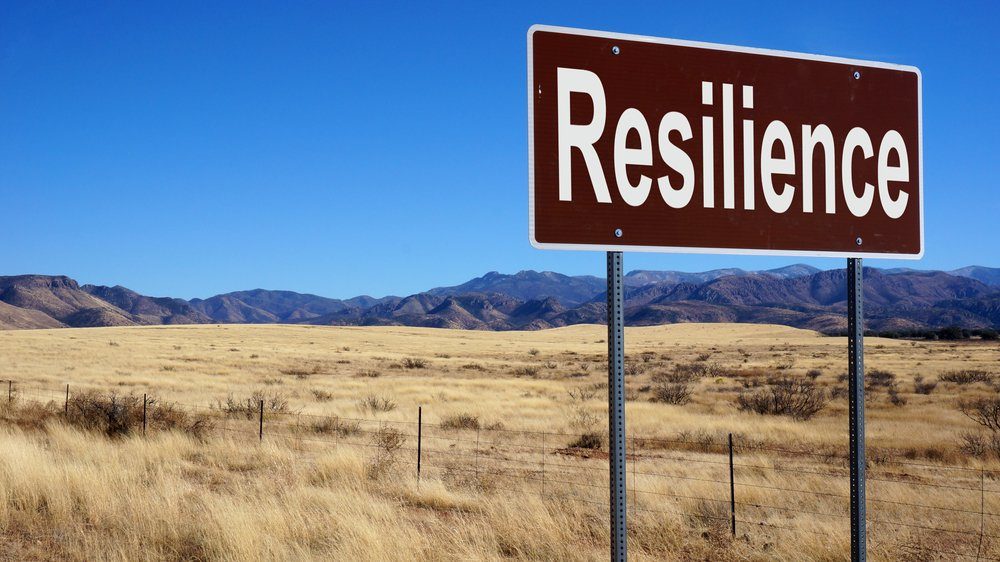Rare Resilience: Is There a Gene for That?

Welcome to Terry Jo Bichell’s “A Rare Mind,” a new Angelman Syndrome News column.
About 75 people, mostly women, were in the room at the Washington Marriott Georgetown, listening attentively to lectures presented by Global Genes about a really technical subject.
The attendees were teachers, waitresses, housewives, and marketing executives — definitely not computer scientists or statisticians — but they asked astute questions about governance of databases and digital platforms for patient information. They were calm, helpful, friendly, and open. And almost every one of them was either a person with a rare disease or the parent of a child with a rare disease.
These people, at some point in their lives, had received very bad news, but they took the hit and kept moving forward. They, or their child, had been diagnosed with a debilitating disease. After having a cry, they rolled up their sleeves and went to work, doing whatever needed to be done to fix the problem, no matter how difficult, complicated, tedious, or expensive.
Many parents of people with Angelman syndrome fit this profile, jumping into fundraising or organizing, and even hard science and therapy development.
When my son, Lou, was diagnosed with Angelman syndrome in 2000, having a cause for his symptoms — a gene — gave me relief and a sense of purpose. Not knowing had been torture. I had been a nurse-midwife and loved my job, but I quickly turned to Angelman research, finally diving in headfirst to get a doctorate in neuroscience.
I never had time to be depressed — or so I thought. Maybe I was just as genetically driven as Lou and all these people at the Marriott, such as Shelley and Jeff.
Shelley Bowen’s two sons had mysterious symptoms, but rather than diagnosing the boys, their doctors suspected the mom of foul play. “I knew there was something ‘off’ with my kids. Mother-thinks-something-is-off should have its own ICD-10 code,” she said. “Really, doctors should always listen to moms, but they don’t, and I was even accused of giving drugs to my children.”
Shelley’s 3-year-old was hospitalized in 1996; 11 days later, her other son was also admitted. They weren’t diagnosed with Barth syndrome until two hours before her youngest son died. Only a few cases of the disease were known at that point. Amid her grief, Shelley formed the Barth Syndrome Foundation and set to work to find a treatment for her remaining son.
Jeff D’Angelo, a middle school physical education teacher from Florida, threw himself into similar work when his son was diagnosed with CHAMP1 mutation. He founded a nonprofit, talked to experts around the world, and attended every rare disease conference he could afford.
“I need to figure out how to do this for a living,” he said. “I can’t stop thinking about it. I can’t turn it off.” There was something remarkably similar about Jeff, Shelley, and all the other people at the meeting, a bunch of nerdy extroverts, calmly refusing to take no for an answer.
Though the root cause of many rare diseases is still unknown, most of the disorders represented at the meeting had a known genetic mutation, discovered through decades of meticulous research by clinicians collecting symptoms and scientists comparing genomes. Maybe there is also a gene for tenacity, grit, and hopefulness, a gene that causes a rare type of reaction to tragedy. A resilience gene. Somebody should study it.
***
Note: Angelman Syndrome News is strictly a news and information website about the disease. It does not provide medical advice, diagnosis, or treatment. This content is not intended to be a substitute for professional medical advice, diagnosis, or treatment. Always seek the advice of your physician or other qualified health provider with any questions you may have regarding a medical condition. Never disregard professional medical advice or delay in seeking it because of something you have read on this website. The opinions expressed in this column are not those of Angelman Syndrome News, or its parent company, Bionews Services, and are intended to spark discussion about issues pertaining to Angelman syndrome.







Leave a comment
Fill in the required fields to post. Your email address will not be published.